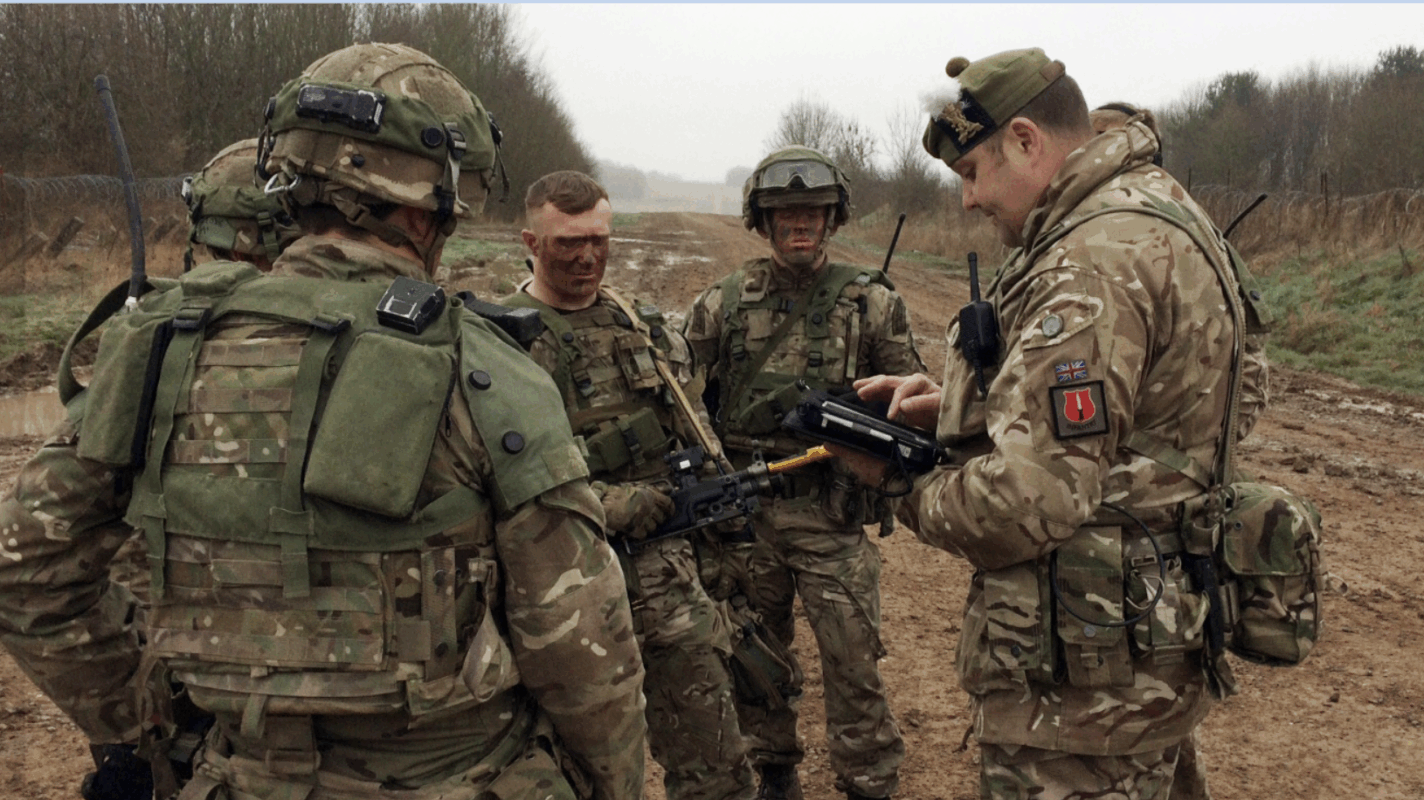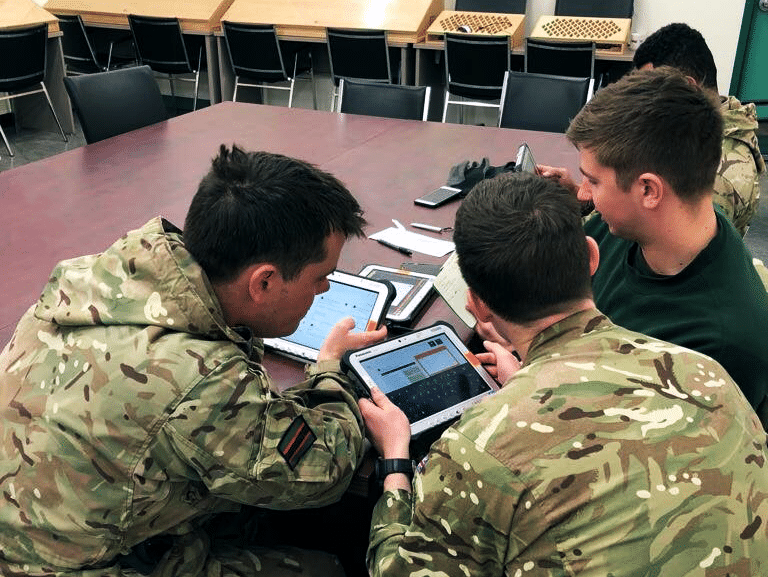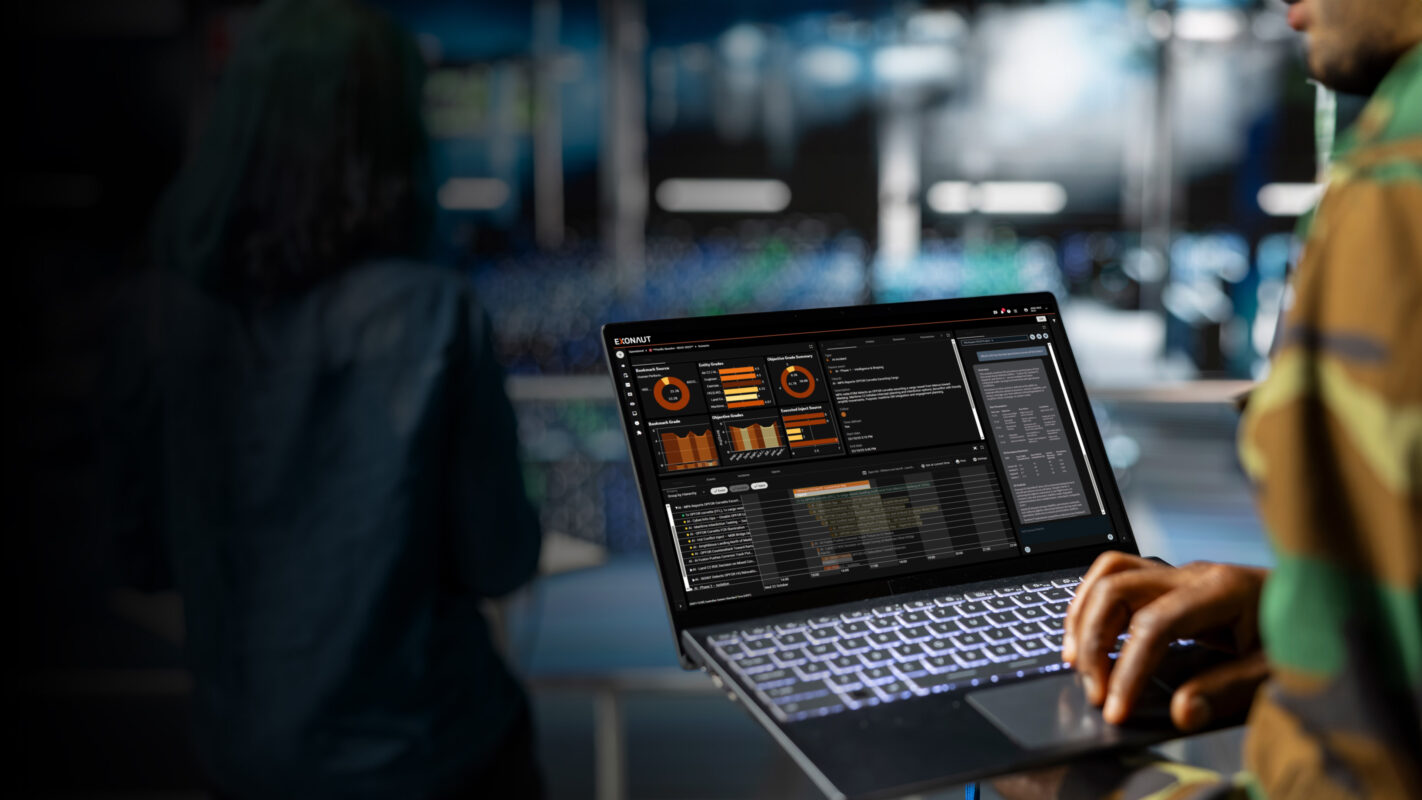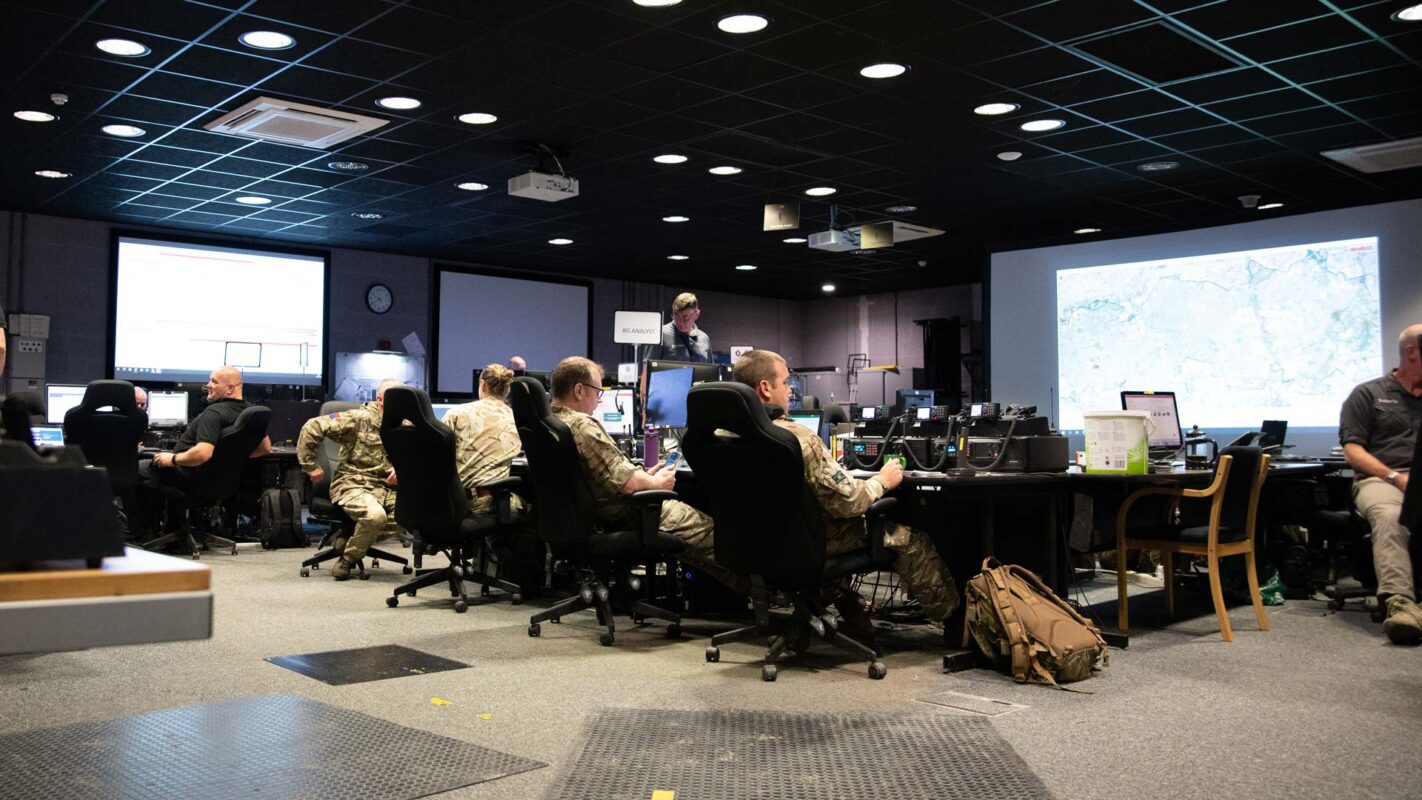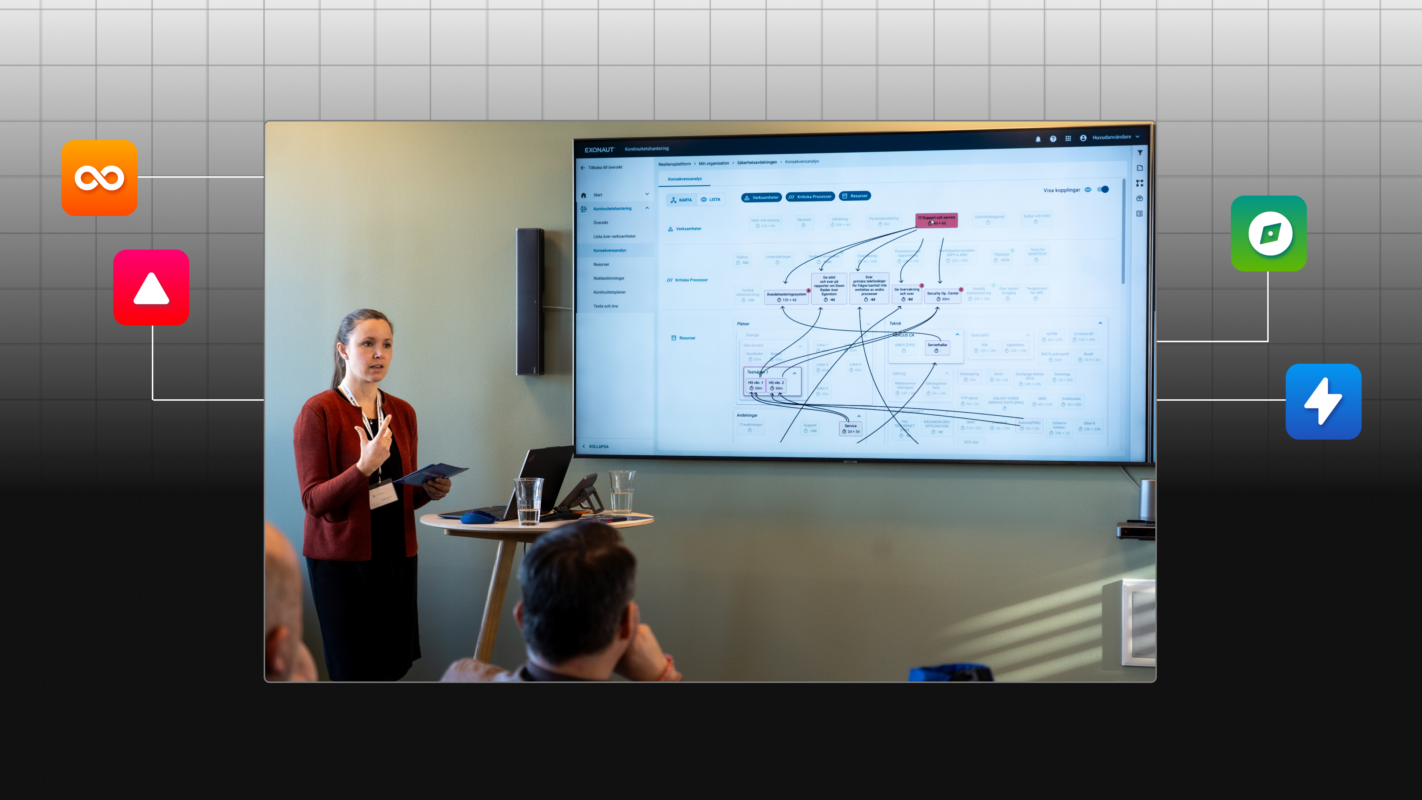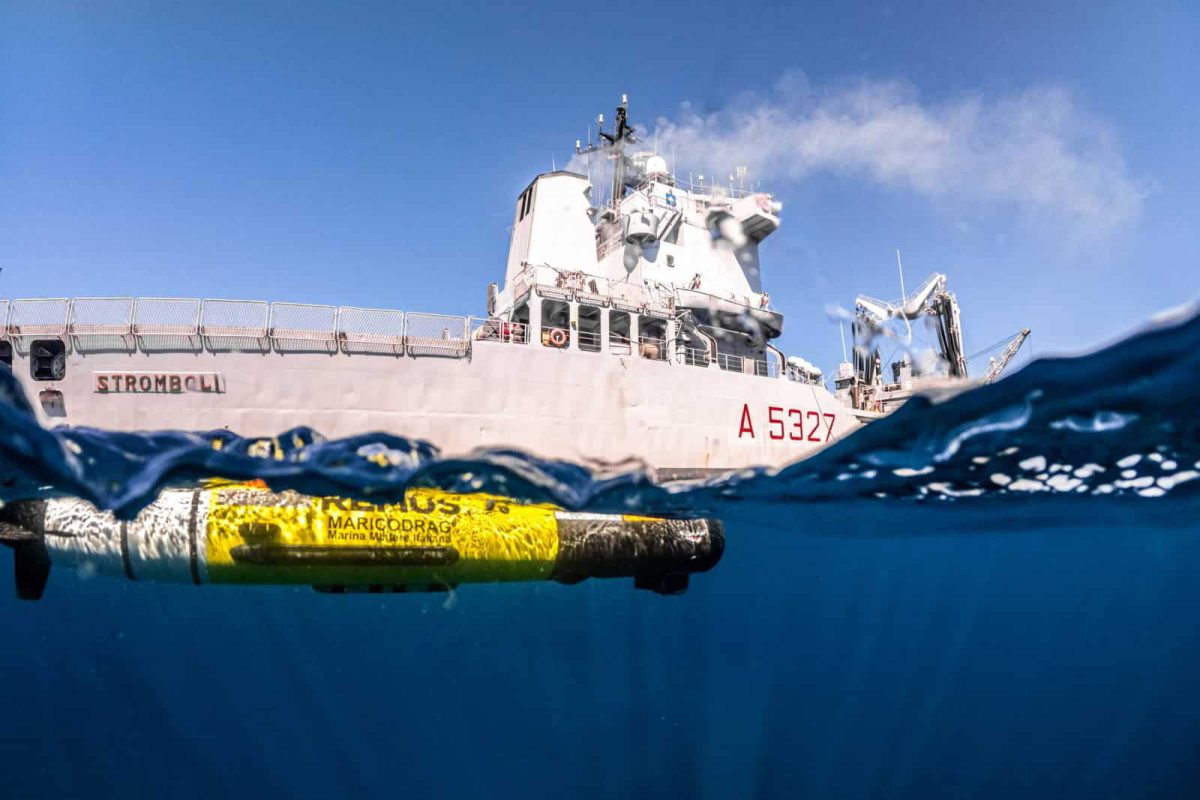For years, 4C Strategies’ Exonaut software has quietly underpinned one of the most rigorous training progression programmes in NATO: that of the British Army. With the British Army renewing its commitment to 4C Strategies’ Exonaut platform for another three years, this partnership with the Collective Training Group (CTG) will soon enter a third decade – a rare milestone in continuous defence collaboration. Few outside the training community realise how much Exonaut has shaped the Army’s mission readiness culture. From planning and execution, evaluation and analysis, it helps deliver training across the Live, Virtual, and Constructive (LVC) spectrum from Company to Division.
We explore this partnership and how it illustrates how high-standards, validated training, and data-driven assurance are now vital for the European forces confronting the very real threat of war.
A tradition of excellence
The British Army has long been viewed among the world’s most professional land-forces. Its own official statement describes a force that “has earned a worldwide reputation for excellence, a reflection of the quality of those who serve and have served.” This reputation is built on values such as courage, discipline, integrity and self-less commitment, which are expected of all soldiers. Given this pedigree, any training-system adopted by the Army must match the same level of professionalism and rigour.
However, even an Army renowned for training excellence was put to the test in the mid-2000s as British deployments to Iraq and Afghanistan picked of pace, regularity, and very suddenly, lethality. The challenge very quickly became how to provide collective training that was not only realistic, but assured, validated and aligned with the rapidly evolving operational environments of two concurrent conflicts. It is within this context, that CTG, under the Army’s Field Army Training Directive (now Land Training Directive)—procured the Exonaut Exercise Management System in its early form in 2007. First trialled by CTG to manage complex mission readiness exercises it was then procured as an urgent operational requirement (UOR) in order to manage the delivery of complex PDT (pre-deployment training) exercises for operations in Iraq and Afghanistan.
Scaled to need
4C Strategies further developed the Exonaut software capability in response to CTG’s requirements—introducing training-progression management, training risk tracking, mobile observation support and more. This rigorous approach meant that when British combat units deployed they could be assured that their collective training had been subject to objective measurement, clear task-based evaluation, and risk-tracking. As mentioned in our British Army case-study : “The British Army has always been respected among its peers for its training … soldiers typically spend a year undergoing a Collective Training progression before being certified for High Readiness.”
The values-framework of the British Army means that this isn’t simply about checklist compliance but about embedding professional standards in training and ensuring validated outcomes. Something that Europe may find essential in the years ahead – the days of mere military training attendance being no longer adequate.
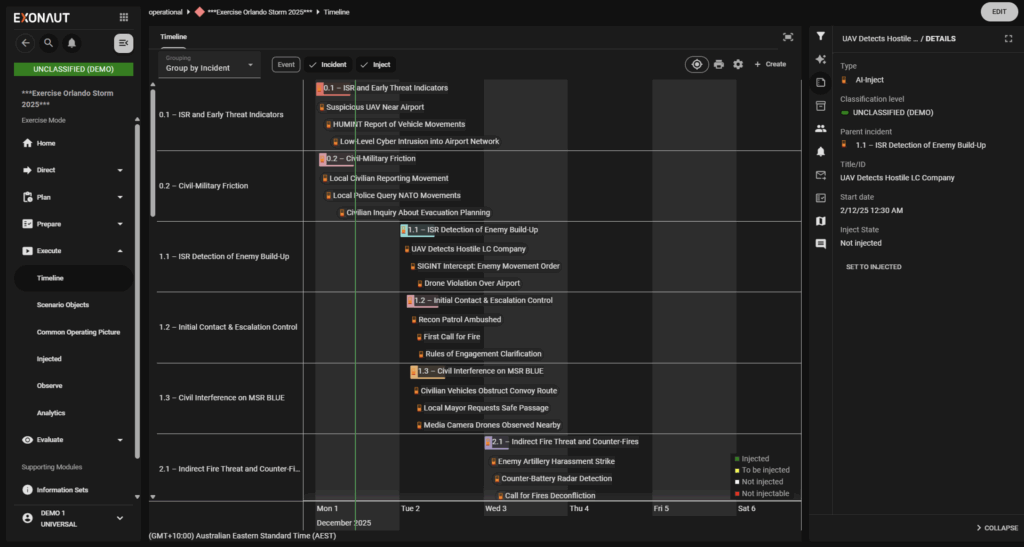
A growing partnership – lessons learnt in training
After the initial 2007 trial of Exonaut by CTG, in 2009 the UK Ministry of Defence (MoD) purchased an Exonaut CTEMS (Collective Training and Exercise Management) licence for the core Training & Exercise Management modules, including site-specific licences for CTG’s mobile-observation requirements. Since 2014 4C Strategies has embedded an Operations Delivery Manager (ODM) within CTG to provide continuity, anticipate demand, manage emerging requirements and ensure the software and military-delivery team are synchronised.
In 2025 a new three-year contract was signed to support CTG’s Land Training Directive and the design, delivery and assurance of all defined Collective Training (CT) and Mission-Specific Training (MST). Although this is an enduring relationship the innovation still continues. The latest version of Exonaut, updated for the British Army, supports cloud-hosting; integration with a TES (Tactical Engagement Simulation) system and refined data-visualisation tools supporting validation and reporting. The British Army has leveraged Exonaut, and continues to do so, to ensure training is objective, measurable, auditable and validated.
Why this matters now?
The current security situation in Europe – due to the war in Ukraine – underscores the need for readiness, often at scale and under time-pressure. Forces across the continent are under pressure to ensure that they can deploy, fight and sustain operations in a peer-or near-peer environment. In this situation, the “old” model of training by intuition or experience alone is no longer sufficient. Objective measurement, standardised metrics, data-driven evaluation and readiness assurance become critical.
It is no longer acceptable for Military Commanders to just say that their forces are ready, it must be tested, measured, and validated with underpinning data to prove it. They owe this to the taxpayers, the Governments, and not least, to the personnel who may be put in harm’s way. Today preparation of your armed forces is part of the moral contract you sign with your recruits.
A proven model for training and exercising
The British Army’s experience, using Exonaut, offers a proven model: training progressions that are tracked, risks identified early, performance data captured live, and certification only granted when units have met clearly defined objectives. For other nations seeking to invest in training, this offers a roadmap: adopt digital systems that link planning → execution → evaluation → lessons exploited; ensure training is linked to mission-specific requirements; and build assurance into the chain of command that forces are truly ready, not just “attended training”. The ability to also rapidly assimilate, test, trial, and experiment with new tactics, concepts, capabilities and equipment is also key. It is much easier to do when there is a process in place that trains and tests against set objectives with common performance objectives. A case in point; how do you know if you have improved X (‘insert capability here’ – lethality, reaction, understanding, supply) unless you have a measured basis to start from?
The British Army’s standing and reputation rest on a legacy of professionalism, well-trained soldiers and rigorous standards of conduct. When that army chose to embed a platform like Exonaut and a partner like 4C Strategies into its collective training ecosystem, the results were clear: training is not a tick-box exercise, it’s a mission-critical assurance activity. As Europe faces new threats, the need for such validated, objective, data-driven training will only increase. The British Army has shown how it can be done and continues to invest in this core, quiet, capability.
Accelerate mission readiness
If you want to know how you can accelerate mission readiness by engaging the training audience and building critical capabilities with fewer resources, we are ready to help.
